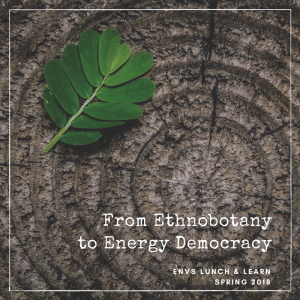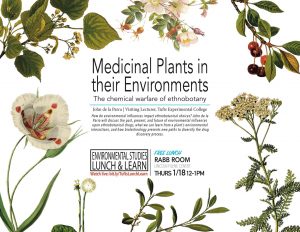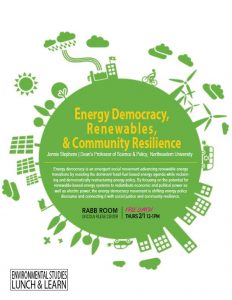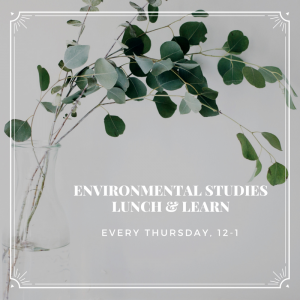 Tufts has a month-long series of events planned to educate the community about sustainability issues. The month will culminate with an Earth Day celebration on the Medford/Somerville campus.
Tufts has a month-long series of events planned to educate the community about sustainability issues. The month will culminate with an Earth Day celebration on the Medford/Somerville campus.
April 2nd
Tom Thumb Student Garden
Garden Club Tea Swap
8:00-9:00PM, Eaton 203
April 3rd
Tufts University Phone Bank to Defend Transgender Equality
6:00-9:00PM, LGBT Center
April 3rd
Talking 100% renewable energy w. State Reps. Connolly and Barber
7:00-8:00PM, Barnum 104
April 4th
Students for Environmental Awareness -SEA
Chasing Coral Screening and Discussion
7:00-9:00PM, Terrace Room
April 5th
Environmental Studies Program, Tufts University Lunch & Learn:
Land Cover in New Hampshire
12:00-1:00 PM, Rabb Room
April 5th
Tufts University Urban and Environmental Policy and Planning
Building Resilient Communities Networking Night
5:30-7:30PM, 51 Huntington Ave, Boston
April 6th
WSSS Symposium 2018: Water in Humanitarian Emergencies
8:30AM-4:30PM, The Fletcher School
April 6th
Tufts Food System Symposium
10AM-2PM, 51 Winthrop Street
April 6th
TCA x Polykhroma Present: Visions
8:30-10:30, 46 Quincy Street Basement
April 7th
Social Impact Ideation at Tufts
11:00AM-2:00PM, Robinson Hall, Rm 246
April 9th
An Evening with D’Lo
6:00-7:30PM, Crane Room
April 10th
Students for Environmental Awareness -SEA
Startups and App Development: A Talk with Soli’s CEO
7:00-9:00PM, Crane Room
April 12th
Environmental Studies Program, Tufts University Lunch & Learn:
Somerville Immigrant Worker Health Project: Seeing Environmental Justice Through an Occupational Health Lens
12:00-1:00 PM, Rabb Room
April 13th
Demain: Reimagining Community Systems For A Better Tomorrow
2:00-6:00PM, ASEAN Auditorium
April 19th
Environmental Studies Program, Tufts University Lunch & Learn:
The Road to Food Waste is Paved with Good Intentions
12:00-1:00 PM, Rabb Room
April 26th:
Environmental Studies Program, Tufts University Lunch & Learn
Environmental Justice in the City of Chelsea
12:00-1:00PM, Rabb Room
If you are planning any Earth Month events at Tufts that were not included on this list, please contact sustainabilityoffice@tufts.edu and we will add them.





Find Us On Social Media!